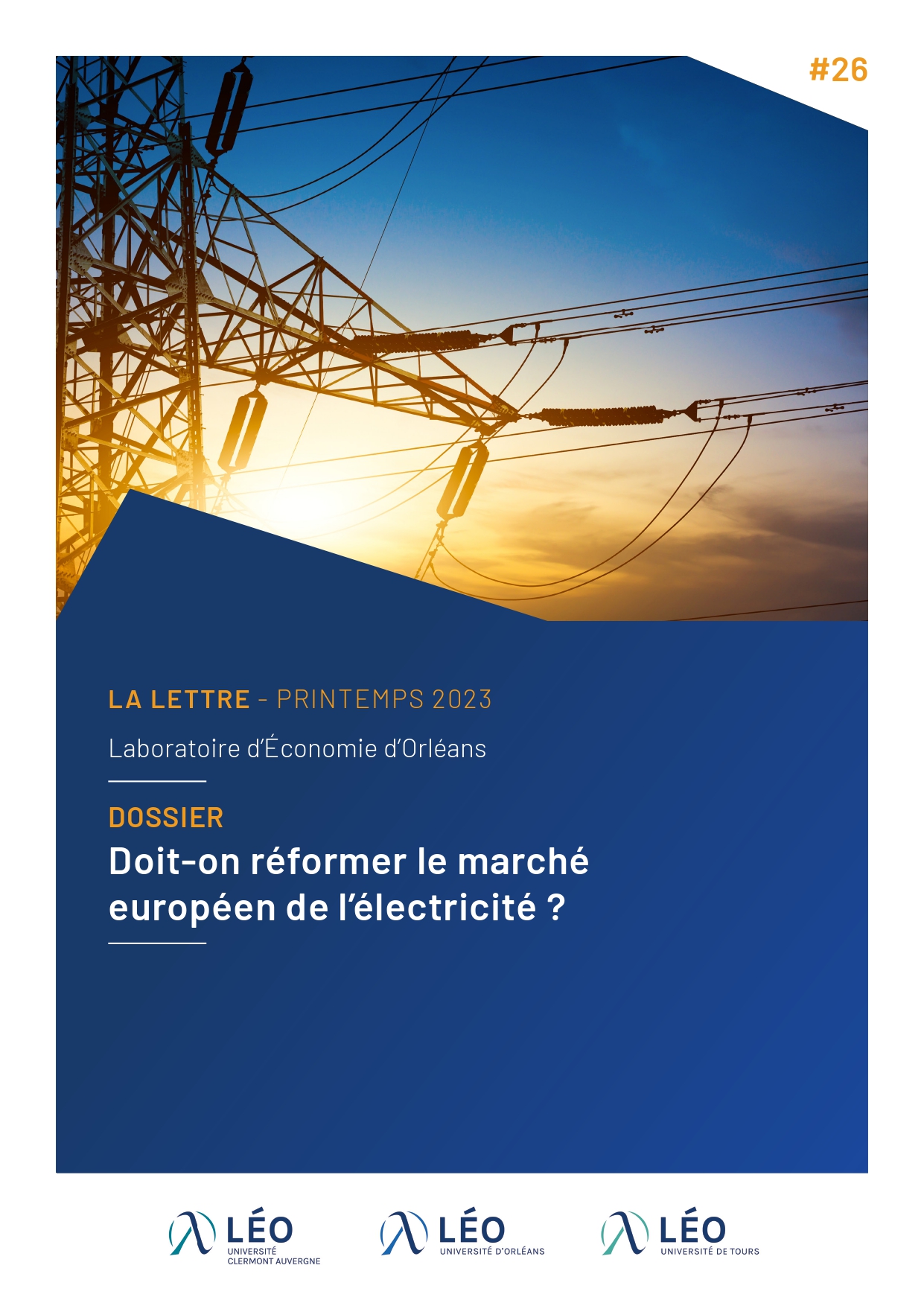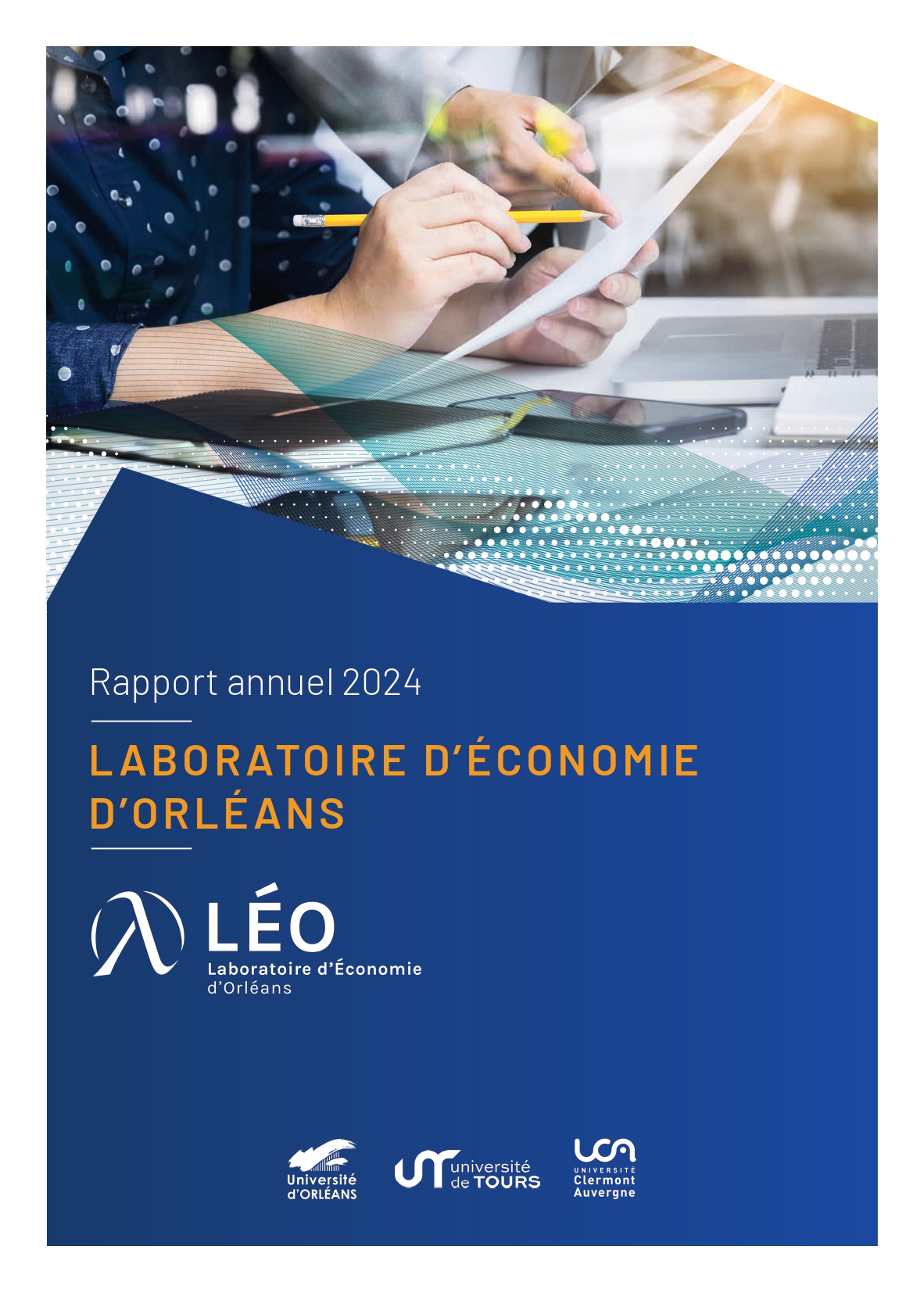
Journée d’étude “Le Seigneuriage”

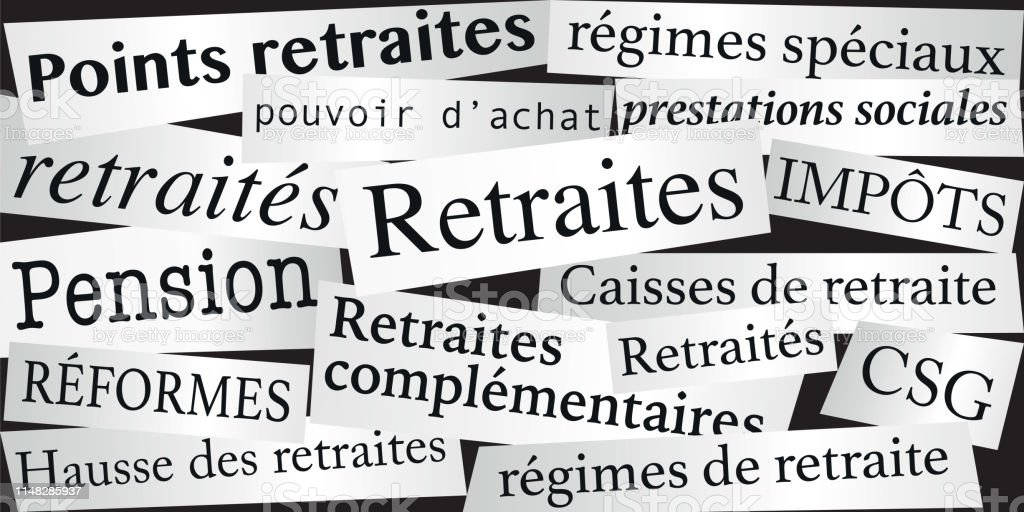
L'Économie en centre-ville d’Orléans : le LÉO et le futur campus universitaire ouvriront sur le site Porte-Madeleine en Septembre 2027
Pourquoi est-il si difficile de réformer les retraites en France ? Une réflexion d'Anne Lavigne, Professeur en économie au LÉO et conseillère au COR de 2016 à 2022
Le LÉO est un laboratoire d'économie rassemblant des enseignants-chercheurs de l'Université Clermont-Auvergne, de l'Université d'Orléans et de l'Université de Tours.
Il comprend une centaine de membres, dont les recherches couvrent trois grands domaines de compétence :


Journée d’étude “Le Seigneuriage”

EENR 2026 – Environmental Economics: a focus on Natural Resources

ORRM – Orléans Meetings on Responsible Resources

1ère Conférence Annuelle « Les ECOPOL »
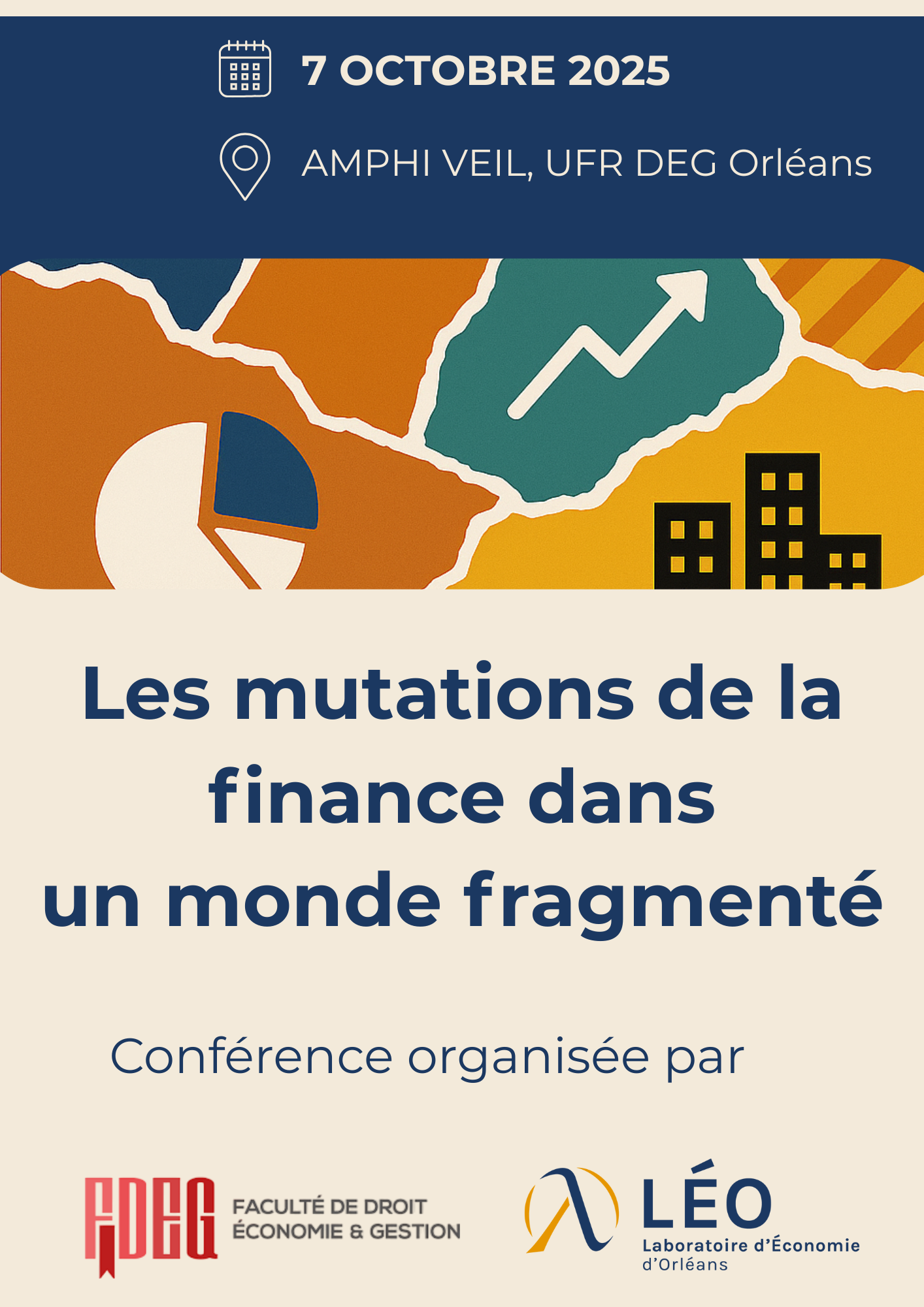
Les mutations de la finance dans un monde fragmenté
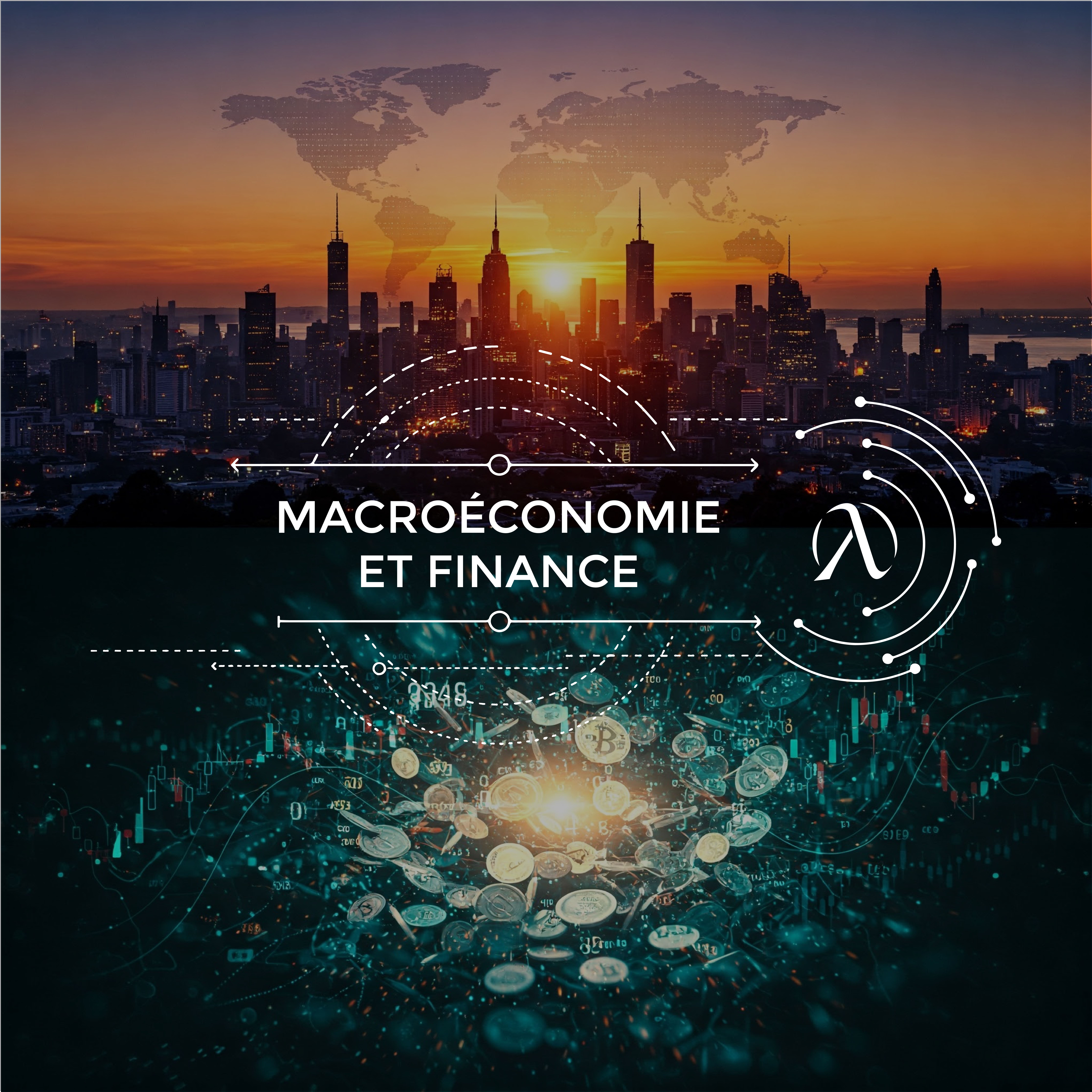
Forecasting Inflation Expectations with Adaptive Learning

Replicating Bitcoin Performance: A Connectedness Analysis of Equity Portfolios
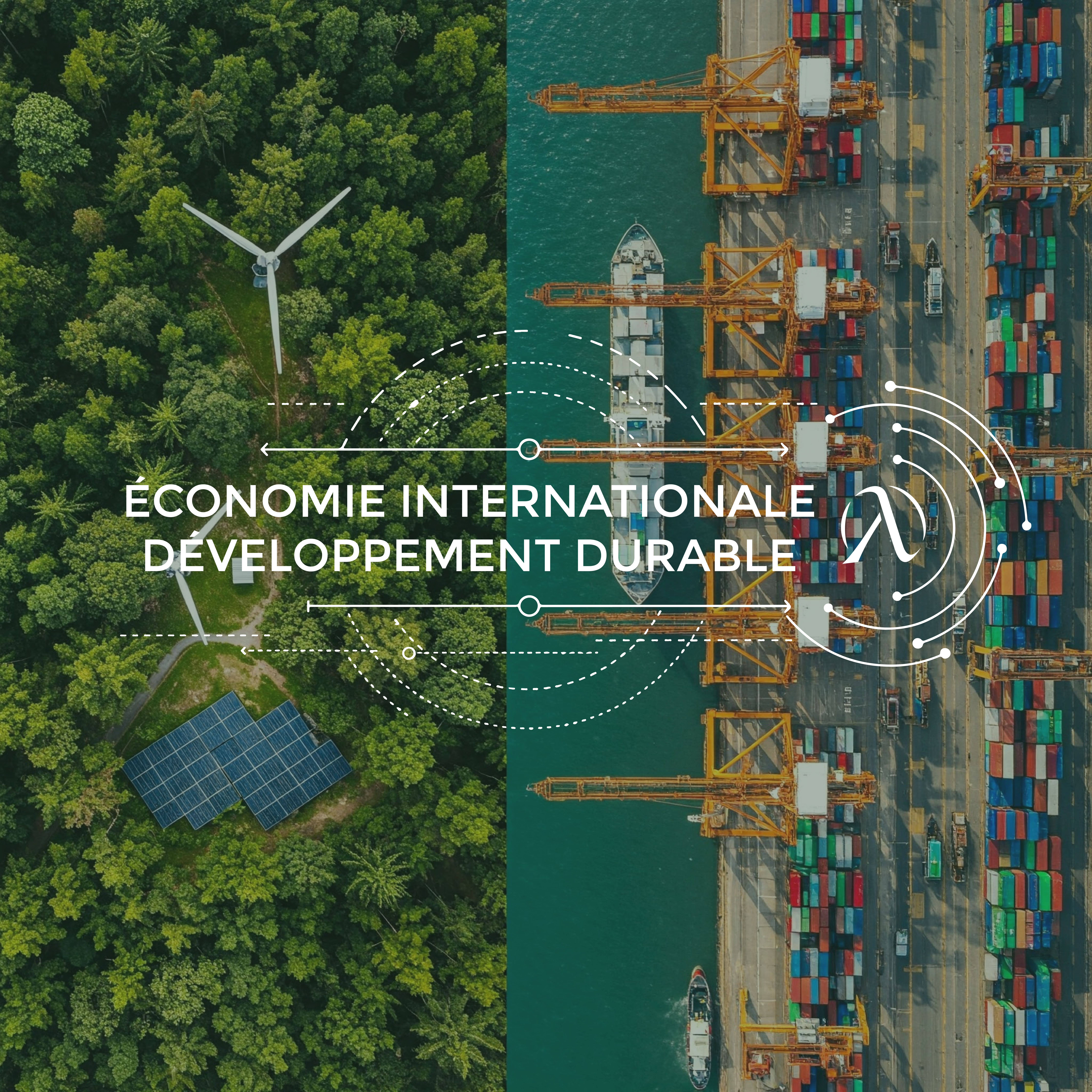
Transforming Under Pressure : Climate Risks, GVCs, and Structural Change

First-year PhD Students Presentation

Should I Wait or Should I Pay? The Dynamics of Private and Public Healthcare

Should the Central Bank react? Extreme Weather Events and Price Dynamics in the Philippines

Seeing Through the Algorithm: How Explainability Shapes Decision-Making on Robo-Advisor Platforms
Public Health as a Buffer for FDI: The Role of Healthcare Services in Economic Stability
Zahra Khalilzadeh Silabi
2026
Starting a Non-Farm Enterprise to Escape Energy Poverty: Household Level Evidence from Rural West Africa
Moustapha Mounmemi, Arouna Kouandou
The Journal of Development Studies - 2025-12-01
Revisiting 15 years of unusual transatlantic monetary policies
Jose Garcia Revelo, Grégory Levieuge, Jean-Guillaume Sahuc
Journal of International Money and Finance - 2025-12
The effects of population health on political risk
Ayoko Charlotte D’almeida Mannko, Ludé Djam’angai, Eric Fina Kamani
European Journal of Political Economy - 2025-12
Secularity and migration aspirations in the Arab world
Hajare El Hadri, Réda Marakbi
World Development - 2025-12
Environmental policy stringency and firm efficiency in developing countries
Bao We Wal Bambe, Jean-Louis Combes, Ben-Vieira Kouassi, Sonia Schwartz
Small Business Economics - 2025-11-22
Public Health as a Buffer for FDI: The Role of Healthcare Services in Economic Stability
Zahra Khalilzadeh Silabi
2026
Effects of International Climate Agreements on Trade in Environmental Goods: The Kyoto Protocol
Ben-Vieira Kouassi
2025-10-14
Volatility during the Global Financial Crisis and COVID-19 pandemic through the lens of high-frequency data: a Realized GARCH approach
Denisa Banulescu-Radu, Peter Reinhard Hansen, Zhuo Huang, Marius Matei
2025-10-12
A tool for economists to make the search for conferences and special issues more efficient and transparent
Jean-Charles Bricongne, Diyar Can, Marwan Menaa, Guillaume de Rouville, Janna Bengouirah, Ismaël Fall
2025-08-25
La réforme des fonds de pension aux Pays-Bas : état des lieux et prospective
Anne Lavigne
2025-06-25
Optimal Green Policy-mix
Lise Clain-Chamosset-Yvrard, Nicolas Clootens, Daria Onori
2025-03-11

